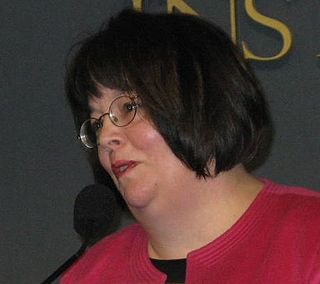A Quote by Mike Berenstain
I sometimes find that my family's emphasis on stories, characters, and art that appeals directly to children rather than over their heads to adults is not fully appreciated by parents who may have more narrowly adult concerns and agendas.
Related Quotes
Many teachers think of children as immature adults. It might lead to better and more 'respectful' teaching, if we thought of adults as atrophied children. Many 'well-adjusted' adults are bitter, uncreative, frightened, unimaginative, and rather hostile people. Instead of assuming they were born that way, or that that's what being an adult entails, we might consider them as people damaged by their education and upbringing.
The new concept of the child as equal and the new integration of children into adult life has helped bring about a gradual but certain erosion of these boundaries that once separated the world of children from the word of adults, boundaries that allowed adults to treat children differently than they treated other adults because they understood that children are different.
I liked myths. They weren't adult stories and they weren't children stories. They were better than that. They just were. Adult stories never made sense, and they were slow to start. They made me feel like there were secrets, Masonic, mythic secrets, to adulthood. Why didn't adults want to read about Narnia, about secret islands and smugglers and dangerous fairies?
I've always been quite mature because of the way my parents brought me up. They were very good at talking to me like a person rather than a baby, and I was around so many actors and directors from such a young age because my dad is an actor. I was more comfortable with adults rather than actually being an adult child.
Much of the pressure contemporary parents feel with respect to dressing children in designer clothes, teaching young children academics, and giving them instruction in sports derives directly from our need to use our children to impress others with our economic surplus. We find "good" rather than real reasons for letting our children go along with the crowd.
Children are often envied for their supposed imaginations, but the truth is that adults imagine things far more than children do. Most adults wander the world deliberately blind, living only inside their heads, in their fantasies, in their memories and worries, oblivious to the present, only aware of the past or future.
Young persons, because of their immaturity, may not fully comprehend the consequences of their actions and should therefore benefit from less severe sanctions than adults. More importantly, it reflects the firm belief that young persons are more susceptible to change, and thus have a greater potential for rehabilitation than adults.
What parents said they valued most were discussions with teachers and heads, and what they wanted was more descriptive information in their children's school reports. This is particularly true for primary schools. Parents wanted to know much more than just how their children were doing academically.
Children have a remarkable talent for not taking the adult world with the kind of respect we are so confident it ought to be given. To the irritation of authority figures of all sorts, children expend considerable energy in "clowning around." They refuse to appreciate the gravity of our monumental concerns, while we forget that if we were to become more like children our concerns might not be so monumental.






































